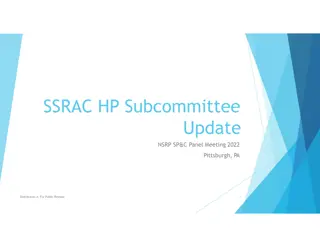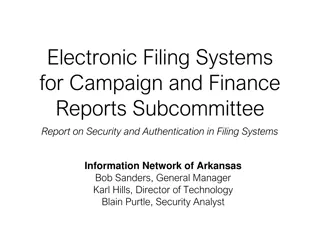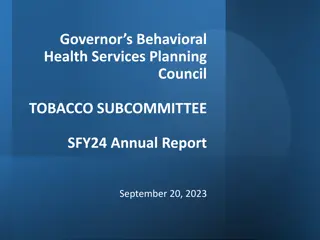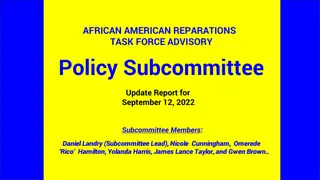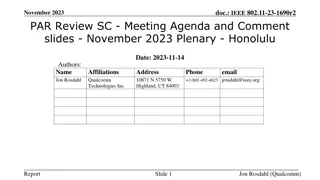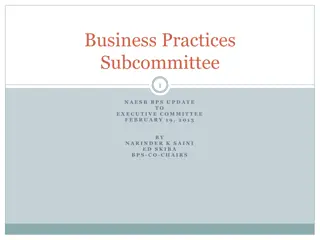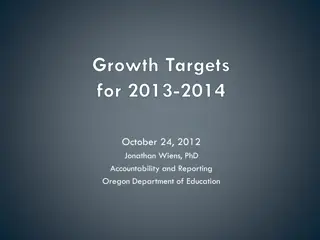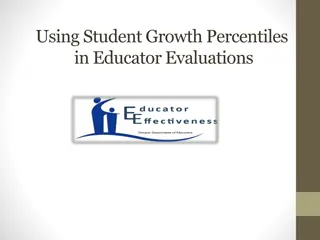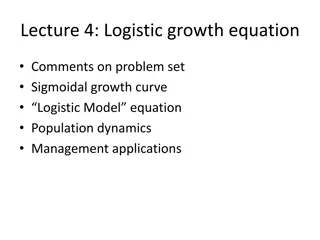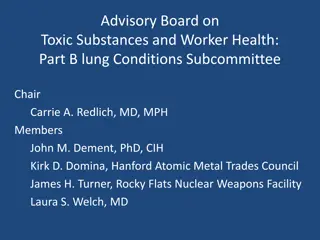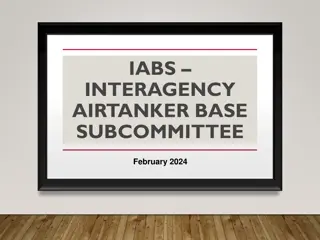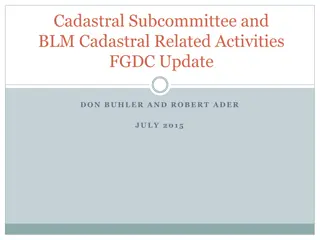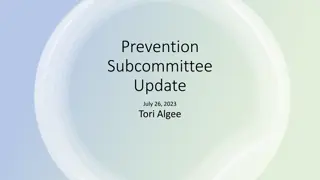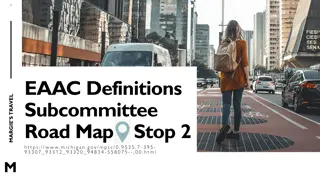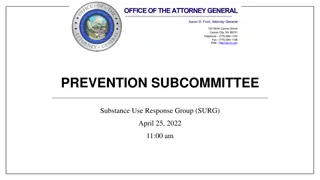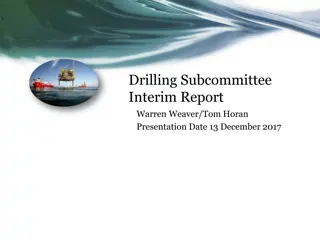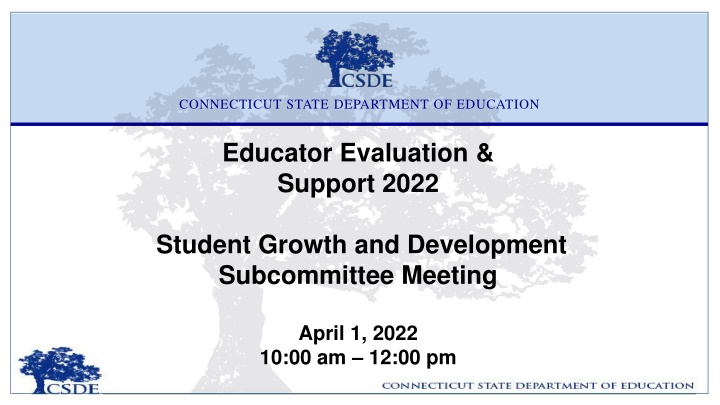
Connecticut State Department of Education Educator Evaluation & Support Meeting 2022 Agenda
Join the Student Growth and Development Subcommittee Meeting of the Connecticut State Department of Education's Educator Evaluation & Support. Explore proposed guidelines, member norms, and flexibilities for the 2021-2022 academic year. Engage in SWOT analysis and discussions on professional practice, student growth, stakeholder engagement, and more.
Download Presentation

Please find below an Image/Link to download the presentation.
The content on the website is provided AS IS for your information and personal use only. It may not be sold, licensed, or shared on other websites without obtaining consent from the author. If you encounter any issues during the download, it is possible that the publisher has removed the file from their server.
You are allowed to download the files provided on this website for personal or commercial use, subject to the condition that they are used lawfully. All files are the property of their respective owners.
The content on the website is provided AS IS for your information and personal use only. It may not be sold, licensed, or shared on other websites without obtaining consent from the author.
E N D
Presentation Transcript
CONNECTICUT STATE DEPARTMENT OF EDUCATION Educator Evaluation & Support 2022 Student Growth and Development Subcommittee Meeting April 1, 2022 10:00 am 12:00 pm
Todays Agenda & Objectives I. II. Welcome Review context of today s subcommittee meeting III. Introduce examples from Massachusetts, Iowa, and Ohio IV. Participate in break out groups V. Report out a) Seek feedback & consensus VI. Next Steps Today s Primary Objectives: Seek consensus about the use of Measures of Accomplishment as part of Professional Learning Plans Seek consensus about the areas of focus for Student Learning Goals
Council Member Norms Be present and focused (avoid incoming distractions like incoming emails, text messages, phone calls, etc.). Position yourself as a learner and a collaborator. Be open to multiple perspectives. Monitor your airtime and encourage others so that all voices are heard.
CT Educator Evaluation Reimagined Proposed Components of CT s Reimagined Guidelines 1. Educator Professional Practice - Professional Learning, Choice, Individualization Professional Growth Plans Educator Practice Observations 2. Student Growth and Development Measures of Accomplishment Continued opportunities to focus on Equity, SEL, and Well-Being 3. Stakeholder Engagement Engaging Families, Teachers and Staff, Community Promoting Academic Success and Well-Being
Flexibilities 2021-22 Prioritize the need to focus on: social and emotional learning and overall well-being of students, staff, and educators; equitable learning opportunities for all students; culturally responsive teaching and learning practices; academic achievement; and engagement with families.
Student Learning Indicators and Measures of Accomplishment Flexibilities 2021-22: Can be demonstrated by implementation of individual, grade-level, or school-wide strategies Mutually agreed upon between educator and evaluator
Excerpts from Other States MA Educator Evaluation Framework Three categories of evidence: 1. Multiple measures of student learning, growth, and achievement 2. Products of practice, including observations and artifacts of planning or instruction 3. Additional evidence relevant to one or more Performance Standards, including student and/or staff feedback
Excerpts from Other States Iowa Model Educator Evaluation System Individual Educator Professional Development Plan Template What student data that suggests the professional learning is necessary? How will the PD goal contribute to student learning? Which professional standards and criteria will be addressed by the goal? What are the training/learning opportunities to support the goal? How will the educator collaborate to learn and apply new knowledge/skills? What indicators will document the accomplishment of the goal? What supports are needed to implement the plan?
Excerpts from Other States Ohio Teacher Evaluation System (OTES 2.0) Framework High Quality Student Data to Inform Instruction and Enhance Practice The teacher must use the data generated from the high-quality student data instrument by: Critically reflecting upon and analyzing available data, using the information as part of an ongoing cycle of support for student learning ; Considering student learning needs and styles, identifying the strengths and weaknesses of an entire class, as well as individual students ; Informing instruction and adapting instruction to meet student need based upon the information gained from the data analysis; and Measuring student learning (achievement and/or growth) and progress towards achieving state and local standards.
Small Groups - SWOT Analysis Each group will review and discuss the Student Growth and Development portion from one of the sample State Plans to identify: Strengths Weaknesses Opportunities Threats
Report Out & Discussion Strengths & Opportunities
Report Out & Discussion Weaknesses & Threats
Recommendations for EES 2022 Council Return to small groups. Develop recommendations: Incorporating Student Growth and Development into Educator Professional Learning Plans. Measures of Accomplishment
Thank You!! Thank you for your collaboration as we reimagine educator evaluation to best support students to: Be engaged in learning. Grow and develop. Be healthy and well. Be motivated and curious. Be problem solvers & solution seekers.


